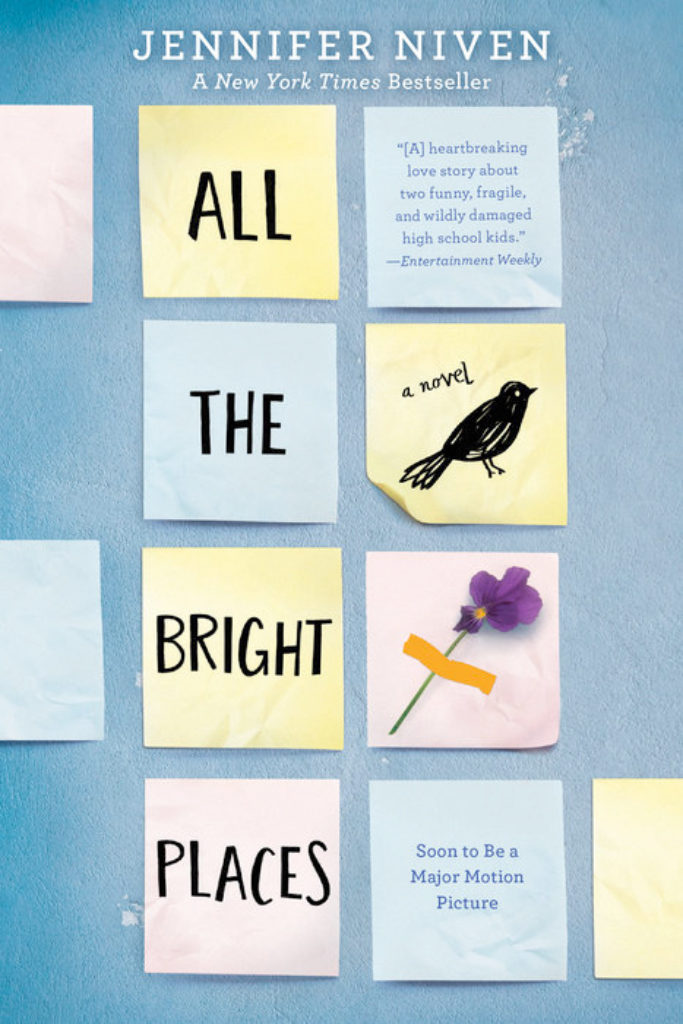For many kids of our age group, September brings a plentiful amount of new beginnings such as the beginning of the school year, fall sports, Friday (and Saturday) night lights and cooler weather. It is, in my opinion, one of the more joyful times of the year.
What some people may not realize is that September is also Suicide Awareness and Prevention Month. There are millions of articles, papers and books written about the subject. While these pieces can be hard to get through, one comes to mind specifically when asking about good books that tackle mental health – “All The Bright Places” by Jennifer Niven.
This book ranks as one of my all time favorites, both for its meaning, which is a beautiful crafting of such a difficult topic and its impact across the world. The book contains dual perspectives between the main characters Violet Markey and Theodore Finch, creating a beautiful story regarding grief, love, friendship, depression and change.
Niven presents the audience with the perspective of teenagers as life unfolds itself into unexpected beauties and joys. The book’s opening finds both of our characters standing on a ledge, contemplating taking their own life, and from this, an unusual friendship makes its way into the light.
Without spoiling, let’s say it does not end in a way that is expected, but ultimately pulls the entirety of the plot together. As Finch explains in the book while in discussion with Violet, “we don’t remember days, we remember moments,” and that is exactly what he leaves her with: moments. From the ledge, to the highway driving, to the “wonders of Indiana,” Finch leaves her with moments. Being a part of the moments that life gives and that we as humans create is a big focus of Finch’s struggles throughout the book and how this goes on to impact him and Violet’s budding relationship. The moments are what makes the bad things feel smaller.
It’s a complicated life that us as humans lead. Our lives are constantly moving and changing, constantly adapting, constantly morphing into something it was not before. You can go to sleep on a Friday in one life and wake up on Saturday in a completely different one. It is just how it is.
This book also points out the both obvious but overlooked idea about not knowing the whole story, another key factor in the way that we treat both ourselves and the people around us. There is always something about someone’s life you’re going to be clueless about. In this story, a good example is Finch meeting Violet’s friend Amanda at a group support therapy session and learning about the inner workings of her life from the perspective he never had before. All of these thematic factors spun into one story make for such a beautiful lesson.
While talking about our mental health is one of the more difficult things we will ever have to do as humans, it is also clear that it needs to be taken care of in the same way we take care of a scraped knee or bruised elbow. If you haven’t read this story, I encourage you to. Know that your story, all your complexities, all your fragility and love make you who you are and there is no shame in that.




